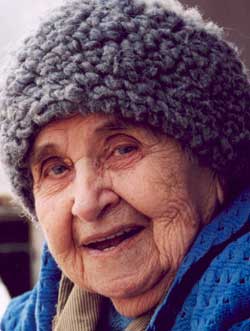As we age, our digestive system also diminishes (not counting the fatty deposits along the digestive tract when obesity occurs), and concurrently, all three functions—contraction, secretion, and absorption—decline. For these reasons, many gastrointestinal issues arise in the elderly, such as choking, hiccups, bloating, constipation, or irregular stools.
 |
| Elderly individuals need to consume easily digestible foods to avoid issues like choking, hiccups, bloating, and constipation… (Photo: w73) |
However, the aging process of the digestive system varies from person to person. Understanding these changes can help seniors manage age-related challenges more effectively.
Why Do Elderly Individuals Often Experience Choking?
Generally, the muscle layer of the digestive system shrinks to some extent in older age, resulting in decreased contractile strength. Normally, the circular muscle fibers in the esophagus maintain a slight contraction (tonus), keeping this tube tightly closed. However, when swallowing, the upper part of the esophagus opens to receive food and then quickly contracts to push the food down to the lower part (which has opened in advance); this process takes only a few seconds.
In elderly individuals, the esophagus may be slow to contract (or relax), taking longer to recover for further contractions (or expansions). Additionally, the coordination between the upper and lower segments of the esophagus may become uncoordinated, making seniors more prone to choking. If this happens, there’s no need for excessive worry; simply pause eating for a minute and sip a small amount of water. When resuming eating, it’s essential to chew thoroughly and focus on swallowing firmly.
However, if choking occurs repeatedly, it is essential to consult a doctor, as there could be another underlying cause. The reduction in the esophageal muscle tone can also lead many seniors to experience “acid reflux,” where stomach contents rise into the esophagus. However, this condition may also be exacerbated by unusual gastric contractions and a lax sphincter between the stomach and esophagus.
Gastric Prolapse
If gastric contractions are weak, it can lead to gastric prolapse, ranging from mild to severe (affecting about one-third of seniors over 70). In some cases, the stomach may drop as low as the navel or even into the pelvic cavity. A significantly low stomach can cause a sensation of “bloating” after meals, where food remains in the stomach for an extended period, resulting in feelings of heaviness and discomfort.
Another cause of gastric prolapse is the weakening of the abdominal muscles—the evidence is when standing upright, the abdomen protrudes forward unrelated to any excessive fat in the abdominal wall. Thus, in many cases, simply exercising the abdominal muscles regularly can help alleviate gastric prolapse. For example, lying on one’s back on the bed, keeping the legs straight, and slowly raising both legs high.
Loss of Appetite
The contraction of intestinal muscles also tends to decrease in elderly individuals, slowing the transport of food from the upper intestine to the lower, which is why many seniors often do not feel hungry at mealtimes. However, there are several other factors that can cause a loss of appetite, such as diminished taste perception, reduced saliva production, or chronic illnesses that lead to fatigue and discomfort; also, anxiety or stress may result in mental unrest or insomnia.
Irregular Bowel Movements
The cause of this condition is the reduced ability to secrete digestive fluids. Some elderly individuals may suffer from tooth loss, impairing their ability to chew food effectively; hence, they should opt for soft, easily digestible foods and may need dentures.
Stomach Ulcers
A bacterium known as Helicobacter Pylori (HP) often troubles elderly individuals (while being less problematic for younger people). When acidity in gastric juices decreases (due to aging), this bacterium can induce gastritis and ulcers. Seniors with normal gastric acidity may experience issues with “acid reflux” that leads to esophageal damage and inflammation, resulting in a burning sensation.
Possible Gallstones
From the age of 40, the gallbladder begins to show signs of aging. It may shrink (holding less bile), and the muscles in the gallbladder walls become weaker (failing to push all bile into the intestine). Additionally, the liver may produce less bile, leading to an increased risk of stone formation. It can be said that gallbladder and bile duct diseases (inflammation, stones) are significantly more common in older adults compared to younger individuals.
Constipation
Elderly individuals who are less active (due to age or sedentary occupations) can experience prolonged storage of stool in the rectum, eventually leading to constipation. Chronic constipation can cause swelling of the veins around the anus, known as hemorrhoids. The anal sphincter in older adults is not as tight as it was in youth, making it challenging for many to hold back stool when they feel the urge to defecate.
In addition to the aforementioned conditions, irritable bowel syndrome and malabsorption syndromes can also pose significant health challenges for older adults. To alleviate these issues, seniors should consume easily digestible foods, avoid overeating, have multiple smaller meals throughout the day, limit salty and fatty foods, and engage in regular physical exercise, like walking. Regular health check-ups are also essential.



















































